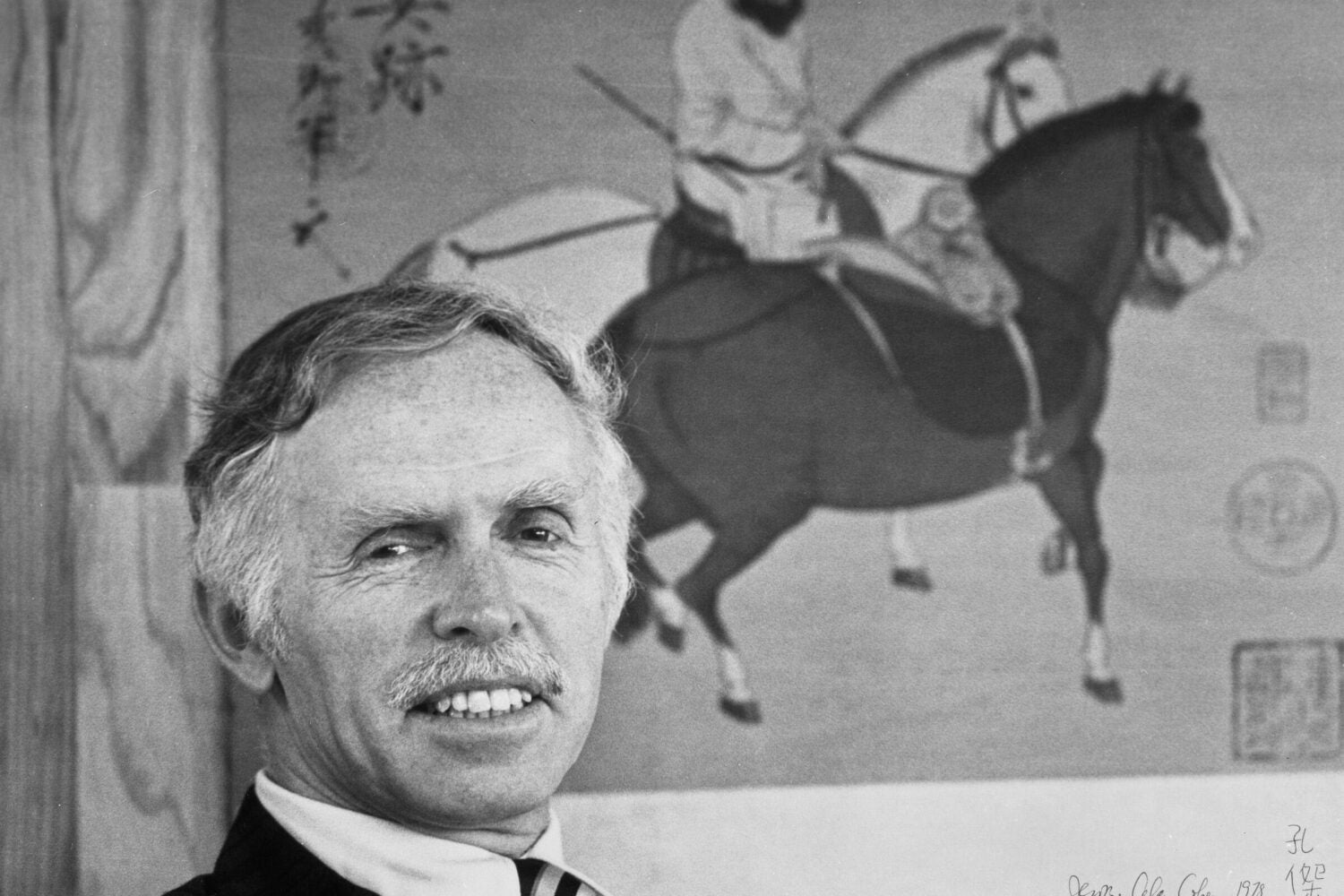Jerome Cohen, a pioneering scholar of Chinese law who introduced the study of East Asian legal systems into American legal education, and shaped global debates on China’s legal system, trade, and human rights for more than six decades, died on Sept. 22. He was 95.
A longtime professor first at Harvard Law School and then at New York University School of Law, Cohen taught and inspired hundreds of students, many of them now leading East Asian scholars and policy makers.
Cohen transformed the study of the legal systems of East Asian in American legal curricula and elevated the field to new heights in the 1960s with the founding of the East Asian Legal Studies program at Harvard Law School.
Cohen joined Harvard Law School in 1964, where he taught for 17 years, and served for part of that time as associate dean of Harvard Law School’s Graduate Program. While at HLS, he taught both future president of Taiwan Ma Ying-jeou S.J.D. ’81 and future vice president of Taiwan Annette Lu LL.M. ’78. He left the law school in 1981 to join the law firm Paul Weiss as a partner, returning periodically in the 1980s to offer a winter term course.
In 1990, he joined New York University School of Law, where he founded the US-Asia Law Institute at New York University School of Law and taught for more than three decades.
William P. Alford ’77, the inaugural Jerome A. and Joan L. Cohen Professor at Harvard Law School, described his former teacher and mentor as “an extraordinary figure whose impact both on the larger world and at a personal level was and remains enormous.”
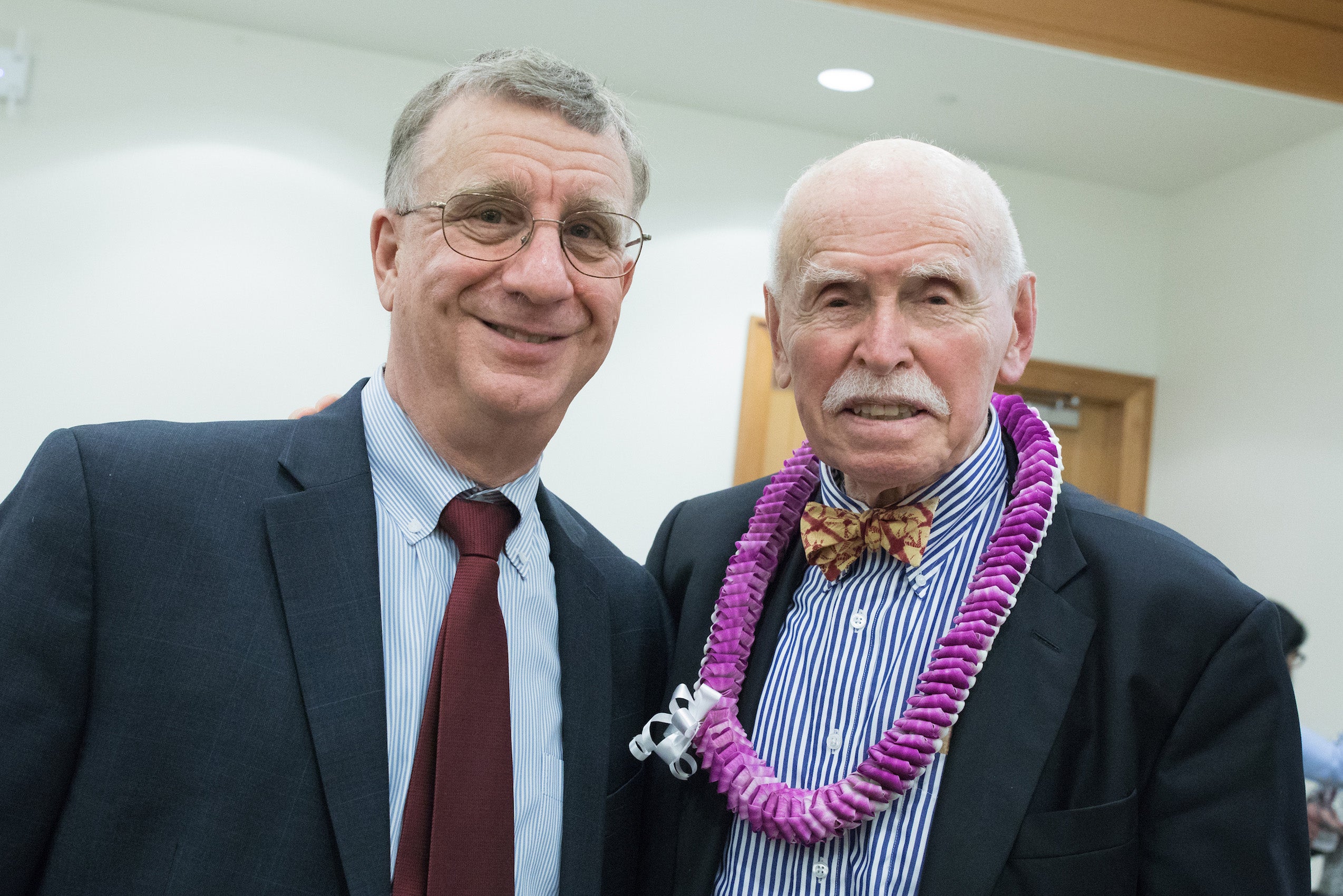
“Throughout his life, he worked assiduously both to promote understanding of East Asia and to foster human rights there (and elsewhere),” said Alford, who co-authored an award-winning 2019 book about Taiwan and international human rights with Cohen and former Grand Justice Chang-fa Lo of the Republic of China (Taiwan) LL.M. ’87 S.J.D. ’89. “Academically, he used his immense gifts to elevate the study of the law of East Asia (and especially Chinese law) in myriad ways. These included the vision to establish EALS in a manner that bridged historic differences between nations and peoples, his pioneering scholarship on everything from criminal law to international human rights to business law, and his unstinting devotion to nurturing future generations. But he was just as visionary and energized beyond academe, tirelessly undertaking human rights advocacy, and fostering broad public knowledge of East Asia, all while, for many years, being at the frontier of corporate legal practice regarding China, Vietnam and other parts of East Asia.”
In an interview in the New York Times, Stephen Orlins ’76, the president of the National Committee on U.S.-China Relations and a former student of Cohen’s at Harvard Law School, credited Cohen with creating “the field of the study of Chinese law in the United States,” and said, “It’s rare to find a field where in the beginning it was so shaped by one person.”
In a tribute in the South China Morning Post, Thomas Kellogg ’03, a graduate of Harvard Law School who now serves as executive director of the Center for Asian Law at Georgetown University, recalled attending lectures on Asian Law with Cohen at Harvard Law. “Jerry was a true giant in the field, and he influenced us all,” he said. “I so clearly remember his semi-annual lectures on campus during my law school days, where he was greeted with a level of fondness and regard that was reserved for a select few. The house was always packed, and his lectures were a model of thoughtfulness and insight. He had a way of getting right to the heart of the matter, of grasping the complexity of legal and political developments in China, and sussing out key trends.”
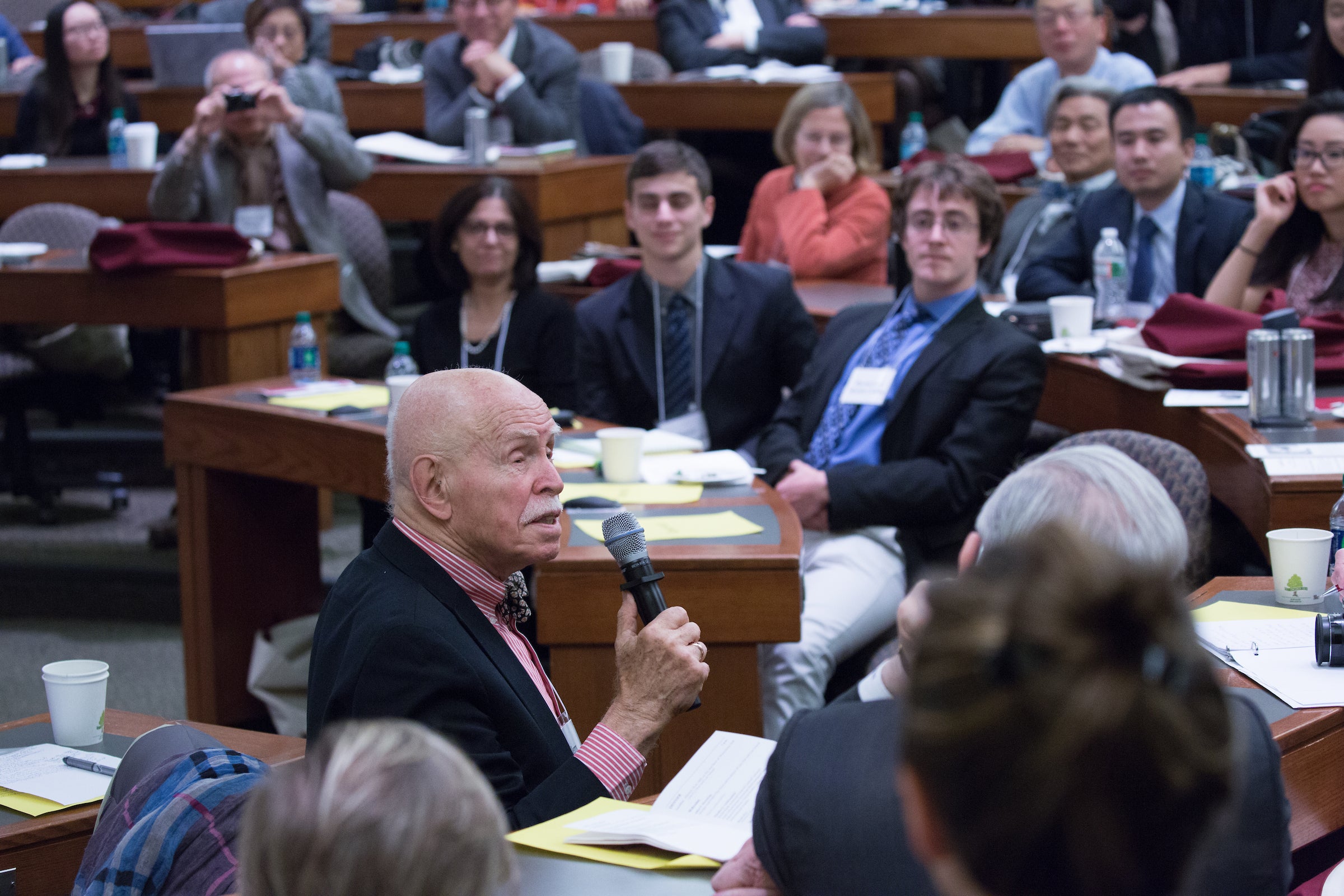
After graduating from Yale Law School in 1955, Cohen served as a clerk for two Supreme Court justices: Chief Justice Earl Warren and Associate Justice Felix Frankfurter. After stints as an associate at Covington & Burling, as an assistant U.S. attorney for the District of Columbia, and as a consultant to the U.S. Senate Committee on Foreign Relations, Cohen joined the University of California, Berkeley, in 1959.
Over the course of his career, Cohen had a significant impact on legal affairs in East Asia, particularly in China.
At a time when few American lawyers traveled to Asia, Cohen learned Mandarin, engaged directly with scholars and officials, and produced foundational scholarship on Chinese legal institutions.
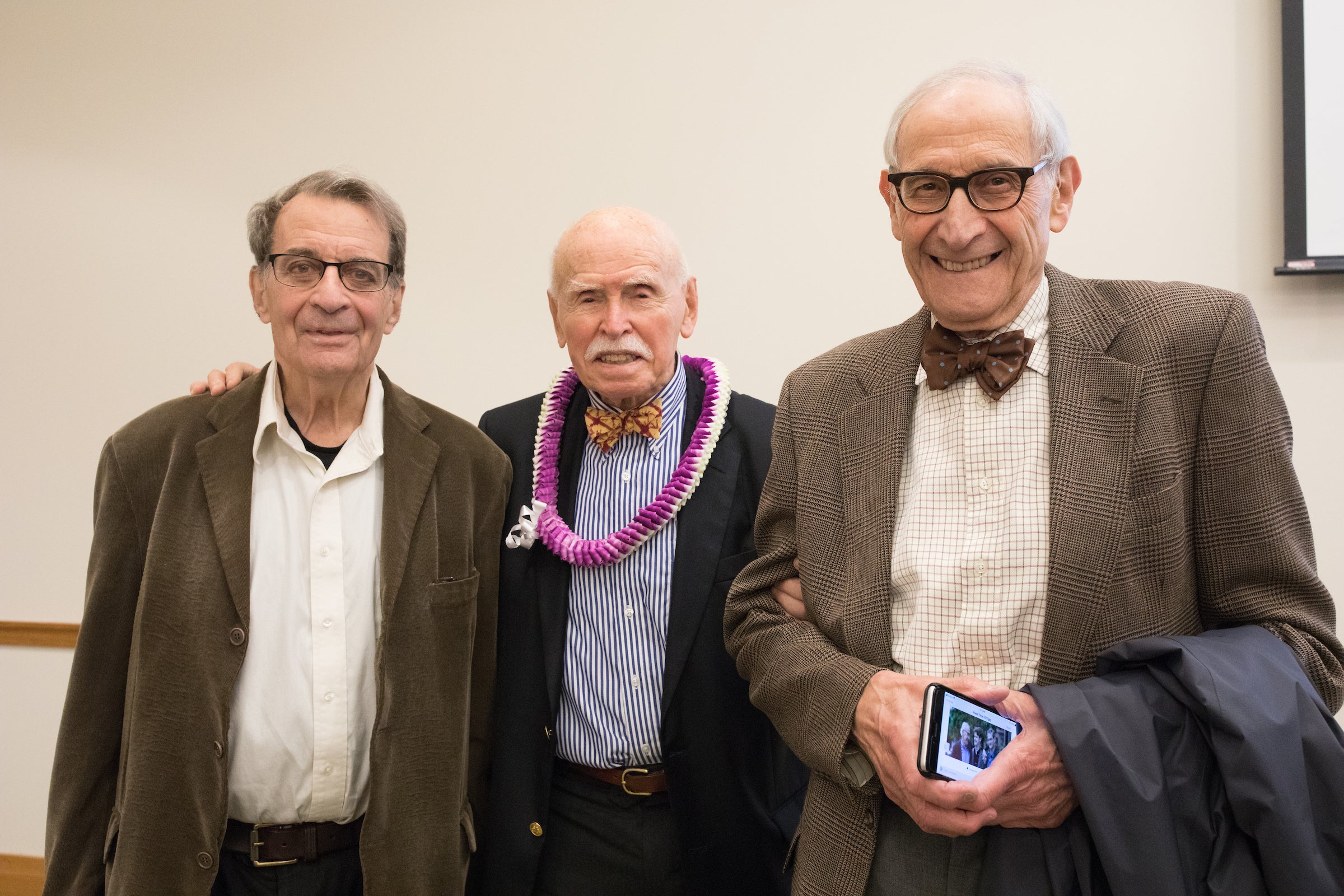
He interviewed people from mainland China who had fled to Hong Kong, to gain insights into how courts and prosecutors worked under Mao Zedong. He published “The Criminal Process in the People’s Republic of China, 1949–63,” a seminal book on Chinese criminal law in the 1960s, even before Americans were permitted to travel to the mainland.
Cohen wrote more than a dozen books and dozens of journal articles. His scholarship on Chinese criminal procedure and China’s interactions with international law, including “People’s China and International Law,” remains foundational.
His final book, a memoir titled “Eastward, Westward: A Life in Law,” published in March 2025, reflects on his more than 60 years as a scholar, teacher, lawyer focused on Sino-American relations, and his tireless advocacy for human rights.
In 1972 Cohen became the first U.S. law school academic to visit North Korea. That same year he first traveled to mainland China, and he soon was an important figure in the opening of relations between the United States and the People’s Republic of China, advising the Chinese government on its developing legal system and teaching law to Chinese business officials.
Cohen was a pioneering legal consultant representing foreign business in Beijing under communist rule. From 1979 to 1981, he lived in China and advised on trade and investment negotiations.
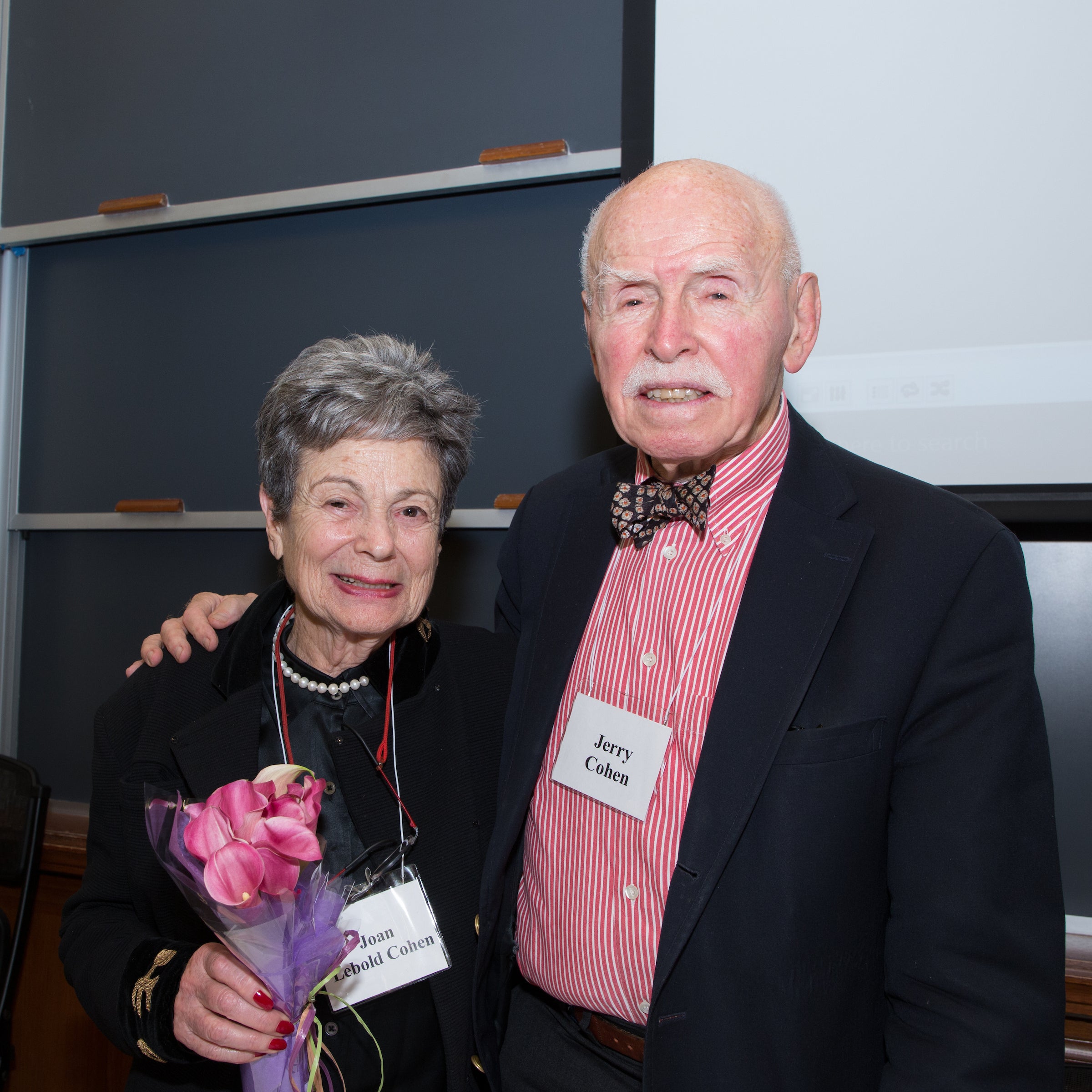
He held leadership roles with the Asia Society, the China Institute in America, Human Rights Watch–Asia, and the Carnegie Endowment for International Peace.
During his long career he negotiated the freedom of democratic political leaders imprisoned by dictatorships in the Philippines, Taiwan, and South Korea, and established himself as as both an advocate for Chinese dissidents and a proponent of continued engagement with Beijing. In a 2009 NYU Law Magazine profile, Cohen said: “Seeing the changes I’ve seen in China over the last 40 years, I know that it is possible. And what better use for my life? I’ve engaged in meaningful work, and I am having an impact.”
